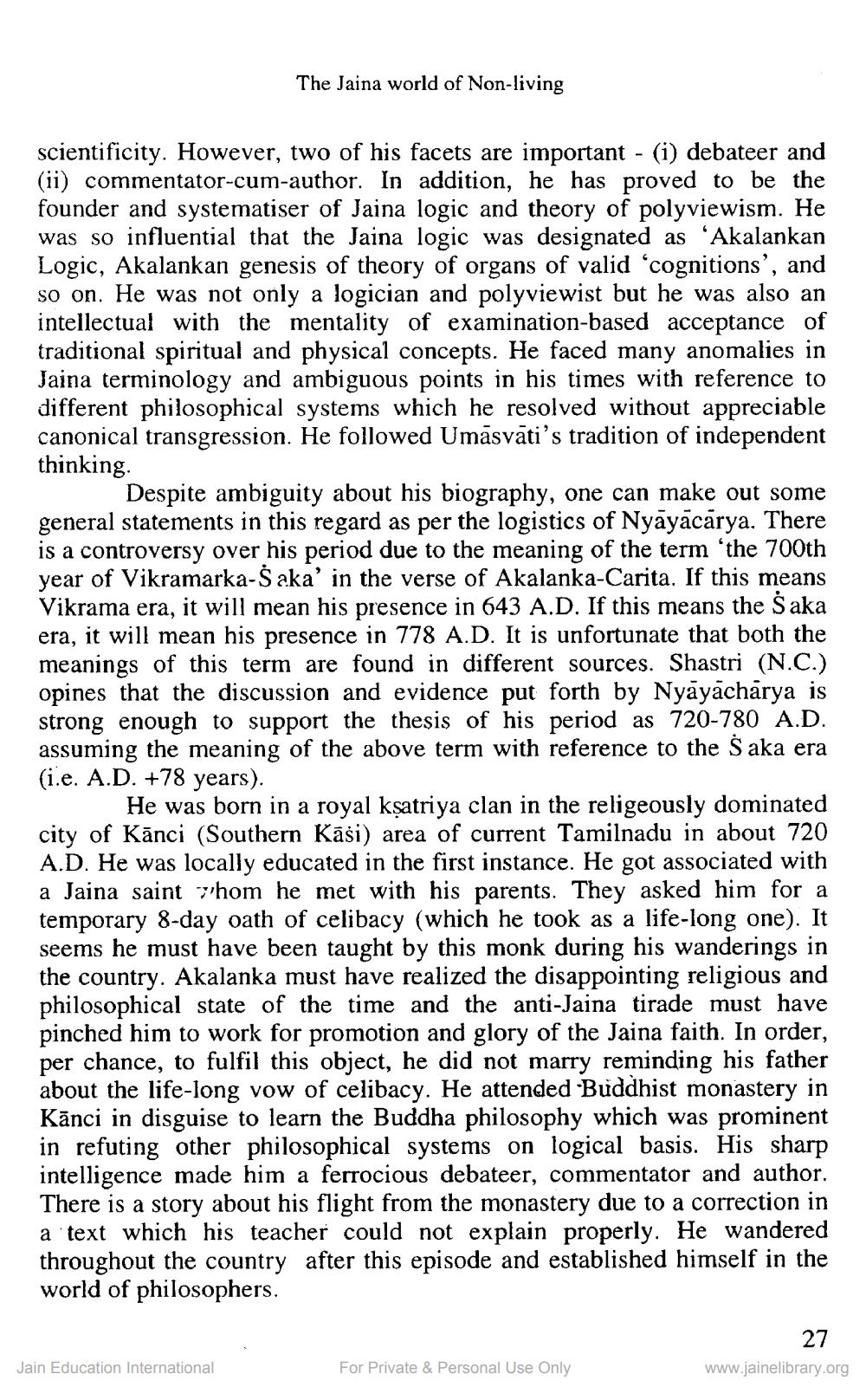________________
The Jaina world of Non-living
scientificity. However, two of his facets are important - (i) debateer and (ii) commentator-cum-author. In addition, he has proved to be the founder and systematiser of Jaina logic and theory of polyviewism. He was so influential that the Jaina logic was designated as 'Akalankan Logic, Akalankan genesis of theory of organs of valid 'cognitions', and so on. He was not only a logician and polyviewist but he was also an intellectual with the mentality of examination-based acceptance of traditional spiritual and physical concepts. He faced many anomalies in Jaina terminology and ambiguous points in his times with reference to different philosophical systems which he resolved without appreciable canonical transgression. He followed Umasvati's tradition of independent thinking.
Despite ambiguity about his biography, one can make out some general statements in this regard as per the logistics of Nyāyācārya. There is a controversy over his period due to the meaning of the term 'the 700th year of Vikramarka-Saka' in the verse of Akalanka-Carita. If this means Vikrama era, it will mean his presence in 643 A.D. If this means the Saka era, it will mean his presence in 778 A.D. It is unfortunate that both the meanings of this term are found in different sources. Shastri (N.C.) opines that the discussion and evidence put forth by Nyayacharya is strong enough to support the thesis of his period as 720-780 A.D. assuming the meaning of the above term with reference to the S aka era (i.e. A.D. +78 years).
He was born in a royal kṣatriya clan in the religeously dominated city of Kanci (Southern Kasi) area of current Tamilnadu in about 720 A.D. He was locally educated in the first instance. He got associated with a Jaina saint 7'hom he met with his parents. They asked him for a temporary 8-day oath of celibacy (which he took as a life-long one). It seems he must have been taught by this monk during his wanderings in the country. Akalanka must have realized the disappointing religious and philosophical state of the time and the anti-Jaina tirade must have pinched him to work for promotion and glory of the Jaina faith. In order, per chance, to fulfil this object, he did not marry reminding his father about the life-long vow of celibacy. He attended Buddhist monastery in Kānci in disguise to learn the Buddha philosophy which was prominent in refuting other philosophical systems on logical basis. His sharp intelligence made him a ferrocious debateer, commentator and author. There is a story about his flight from the monastery due to a correction in a text which his teacher could not explain properly. He wandered throughout the country after this episode and established himself in the world of philosophers.
Jain Education International
For Private & Personal Use Only
27
www.jainelibrary.org




